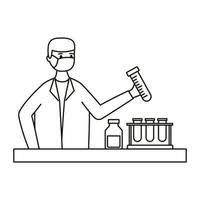
Introduction
Medical Laboratory Technology (B.Sc MLT) plays a critical role in healthcare by performing diagnostic tests and ensuring accurate results. This undergraduate program equips students with skills in laboratory practices, clinical testing, and quality assurance, which are essential for patient care.
Key Areas of Study
- Clinical Chemistry: Understanding biochemical tests for diagnosis.
- Hematology: Blood analysis for diseases like anemia and leukemia.
- Microbiology: Identifying bacterial, viral, and fungal infections.
- Immunology: Study of immune system disorders and diagnostic methods.
- Lab Management: Ensuring proper lab operations and regulatory compliance.
Significance of B.Sc MLT
- Diagnosis and Treatment: Accurate results aid doctors in forming effective treatment plans.
- Preventive Medicine: Tests help detect early-stage diseases, allowing timely intervention.
- Research and Development: Contribution to innovations in diagnostic methods and tools.
Career Opportunities
- Medical Laboratory Technologist: Performs clinical tests and analyzes results.
- Research Scientist: Engages in scientific research to improve medical testing.
- Lab Manager: Oversees laboratory operations and ensures regulatory compliance.
Scope of Employment
- Clinical Labs: Employed in hospitals and diagnostic centers for blood analysis and other tests.
- Public Health: Involved in disease prevention and monitoring in government labs.
- Educational Institutes: Teaching and training the next generation of lab technicians.
Future Prospects
- Technological Advancements: Automation and AI are improving diagnostic testing.
- Global Demand: Aging populations and increased healthcare needs drive job growth globally.
- Continuous Learning: Medical technologists need ongoing education to stay updated on new practices.